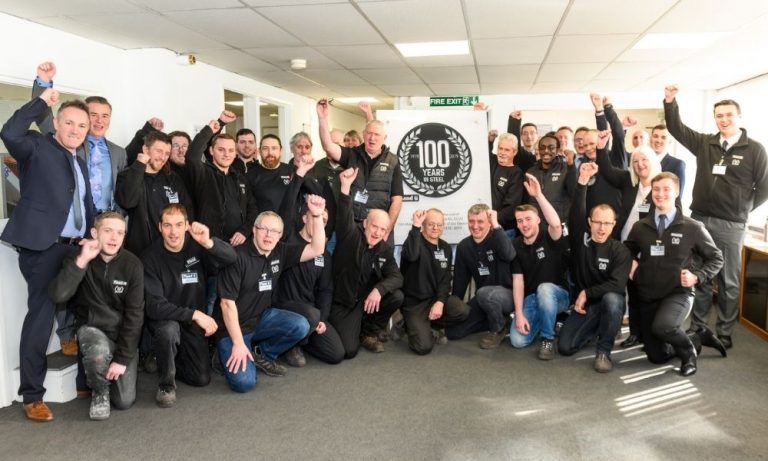Public views sought on the future of Hull’s citywide transport plan
Clarion business immigration specialist warns Yorkshire companies to be ready for imminent changes
Business Immigration law expert, Anna-Elise Harvey of Clarion, is making businesses in the region aware of the Government’s forthcoming changes to right to work checks which will require them to adapt their processes in order to ensure compliance. From 6 April 2022, employers will no longer be able to accept physical right to work documentation from certain categories of new employees, but will instead have to undertake checks on their right to work in the UK using the Home Office’s online system.
The legal change is part of the Government’s move to digitalisation and applies to new employees who hold status on a Biometric Residence Permit or a Biometric Residence Card, or who are frontier workers. Retrospective checks will not be required for those who have presented these types of documents on or before 5 April 2022, provided the checks were done in line with the guidance at the time.
“While in the long term this move online should make the checking process easier for employers, we’re conscious that some business owners and HR professionals may not yet be aware of it,” explains Harvey. “As well as needing to adapt their own systems and implement appropriate training for staff performing these online checks, they may also be faced with the practical issue of making new job applicants understand why their physical documents can no longer be accepted. For some applicants, there could be issues around getting online access or technical challenges to overcome.”
Harvey continues: “This is just one of a number of changes expected in the coming months as the UK adjusts to its new position in the world post-Brexit, and it highlights the need for businesses which regularly recruit from overseas to keep abreast of this complex area of law. Given the risk of incurring fines of up to £20,000 per illegal worker, losing their sponsor licence and even criminal sanctions in extreme cases, it is vital that employers regularly review their processes and ensure staff are fully trained. For this reason, Clarion is hosting a webinar in March to consider where we are just over a year on from the introduction of the new immigration system, to address some of these issues and provide practical advice for employers.
“With such a competitive employment market, increasing numbers of businesses, particularly in the IT, leisure and healthcare sectors, are looking for skills overseas – employers need to understand the consequences of the end to freedom of movement both to and from the EU, and to have access to specialist resources and knowledge if they are to safely navigate through this fast-changing landscape and ensure compliance.”
During 2022, a number of other changes are expected. After positive feedback on the Covid-adjusted right to work checks using video calls and scanned documents, these have been extended until 5 April 2022. An announcement is awaited about whether this will be extended again, or if the Home Office is ready to unveil a tool to enable employers to check a wider range of employees’ right to work statuses online.
It is the Home Office’s intention to introduce a new digital right to work check solution to include many who are currently unable to use its online checking service, including UK and Irish citizens. This will include permitting digital identity verification via authorised third parties for a fee. Their view is that this will enable checks to continue to be conducted remotely, but with enhanced security – a popular move for many employers, although some are concerned about what the introduction of a paid-for service will mean.
Another likely change will be the introduction of a ‘Global Business Mobility visa’ which is expected to combine and reform some of the existing business immigration routes, with the aim of providing more options for sending personnel from eligible overseas companies to the UK. In addition, a new ‘high potential’ individual visa route is being touted – although the criteria are as yet unknown, they are likely to be linked to top qualifications from high-ranking universities across the world, and may not require a job offer.
Harvey continues, “With some employers still unaware that they are legally required to perform right to work checks for all new employees, including British citizens, this is an often misunderstood and neglected area. Over the next two years, we’re expecting a host of announcements, including rolling IT changes and updates expected for sponsors, so it’s more important than ever that businesses protect themselves, keep up to date with changes, and mitigate risk by seeking expert advice.”
Businesses urged to apply for funding still available in COVID-19 support grants
Sheffield-based matchmaking platform for academia-industry collaboration acquired
Caddick Construction is appointed to build distribution warehouse at Trafford Park
New senior appointment for Property Disputes at Blacks Solicitors
Successful year for Leeds-based Pland Stainless
A super deduction successor could trigger £40bn-a-year boost for UK business investment
- More than half of firms (53%) plan to claim the super deduction.
- A fifth of qualifying capital spend is only taking place because of the opportunity presented by the super deduction.
- Some 19% of qualifying capital spend was as a result of accelerated investment plans due to the super deduction.
- And 2% of qualifying capital spending is being invested in the UK – rather than elsewhere – because of the super deduction.
- In total, 41% of planned qualifying capital investment in 2021-23 is due to the super deduction – more than half of which would not otherwise have taken place in the UK.
- 50% of respondents indicated they would revise investment plans as a result.
- 24% said they would make additional capital investments in the UK.
- 13% would make additional investments – and bring forward investment timescales.
- A further 13% would accelerate UK investments already planned.
- Survey respondents revealed plans for £1.3billion of capital projects and said a new investment deduction of the type proposed would see £169million of that spending accelerated – and a further £224million of projects added.
- Extrapolating these findings to a medium-term projection of business investment shows this could increase spending by 17% by 2026, compared to existing projections.
- This is equivalent to additional investment worth £40billion per year by 2026.
- Expanding the assets that qualify for a permanent investment incentive – to include, for example, second-hand, leased and rented assets – and expanding the relief to unincorporated businesses could raise investment further, with potential for an additional boost of 4% over current projections, or another £10billion of investment per year by 2026.











